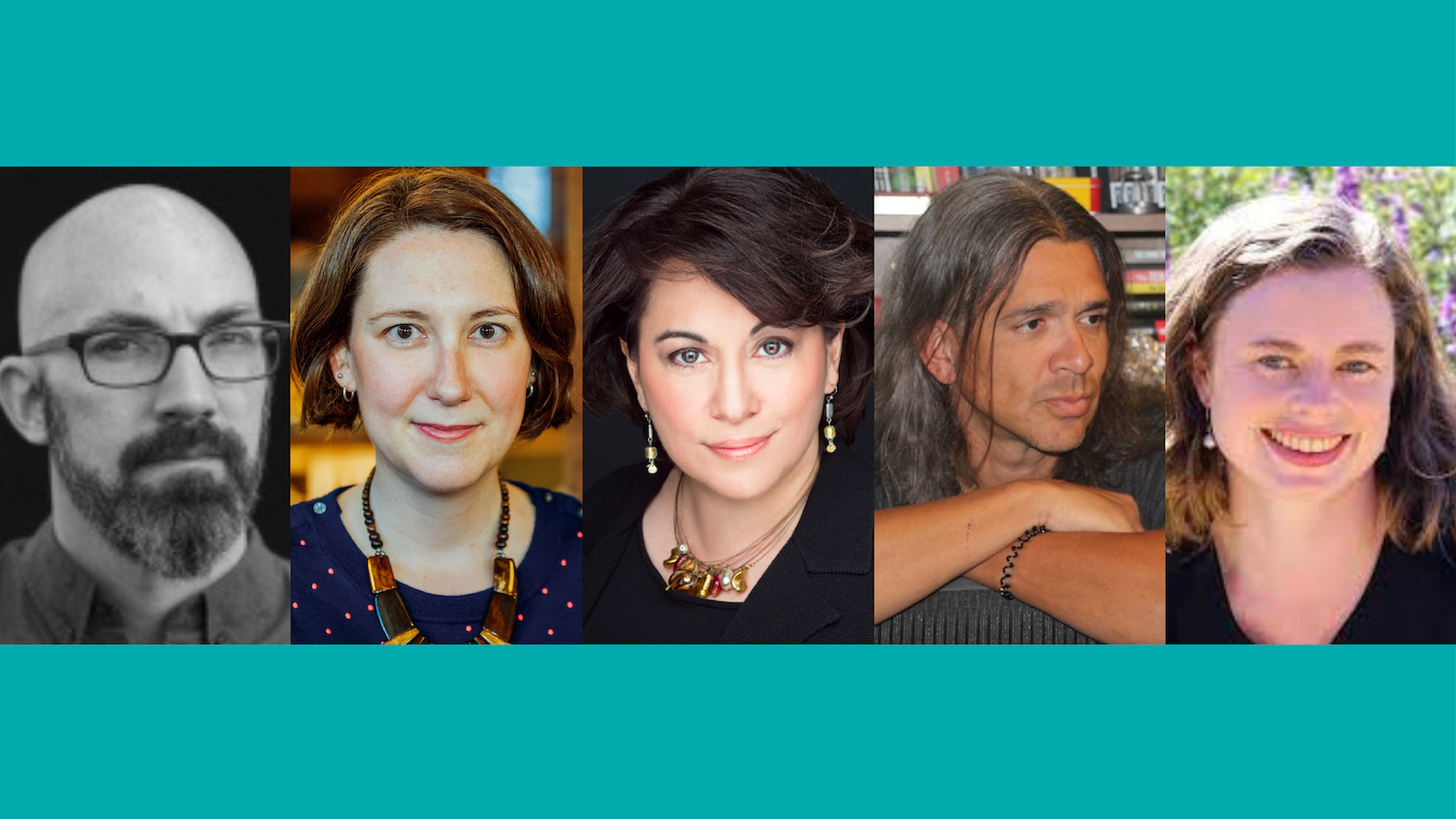
The fifth edition of StoryFest 2022 is just days away. To kick things off, we corresponded with a few of the 40-plus authors who will be in attendance to get their take on writing through the pandemic, the role of libraries in modern society, the power of books to transform lives, and why stories matter.
In the first in this four-part series, we asked Clay McLeod Chapman (Whisper Down the Lane, Ghost Eaters), Stephen Graham Jones (The Only Good Indians, Don’t Fear the Reaper), Alma Katsu (The Hunger, The Fervor), Kate Racculia (This Must Be the Place, Tuesday Mooney Talks to Ghosts), and Libby Waterford (Can’t Help Falling in Love, Take Two) about writing during the pandemic. Here is what they had to say:
Westport Library: This is our first in-person festival in three years, and we're thinking a lot about how the pandemic has changed our way of life. How has the pandemic changed the way you think about or approach telling stories? How has it changed your process as a writer?
Clay McLeod Chapman: It's funny, but pandemic office hours were nearly the same as pre-pandemic office hours, only with more breaks in between childcare corralling. In the thick of the pandemic itself, my writing became increasingly interior, for better or worse. I was really scraping the headcheese from within my skull for a year or two. First drafts were far more introspective. Perhaps less plot driven. Definitely more focused on the mental and emotional states of my characters, which was really just a flimsy disguise for myself.
Kate Racculia: Weirdly — or perhaps not so weirdly — it has slowed me down. As in, I feel less urgency to write The Next Great Book and am more interested in taking my time and figuring out what it is I really want to say in [my] next book. I'm sure this is partially because of how the pandemic has changed my relationship to work and ambition, period. I went back to work full time — from home, at a very manageable day job — and now my writing doesn't have to be anything other than my own creative practice, how I notice and process the world. I'd like to share it, of course, but I'm less focused on producing for the sake of producing.
Alma Katsu: Especially early in the pandemic, people were thirsting for stories for a distraction, whether by binge-watching streaming television, or thankfully, turning to novels. I've [seen] a slight uptick in preferences for faster-paced stories, but there are still plenty of readers who want something slow and immersive. Trying to find the sweet spot between the two has been a bit of a challenge.
Stephen Graham Jones: Living in Colorado, there's trails and trails and trails. During the pandemic — not saying it's over, either — when it was all "isolate or pay the consequences," the trails were my refuge. On my mountain bike. Which I wore out and then wore out some more. But doing that, going back and forth from writing, writing, writing to riding, riding, riding, I think it kind of conditioned me to associate the two some. Meaning, now, I find myself writing a couple hours, then going out to slam up or down this trail for three or four hours. Rinse wash repeat. Not a bad cycle I’ve fallen into, really.
Libby Waterford: The pandemic enabled me to make new, stronger connections with writers via video sprints and virtual conferences, but I still miss meeting in person with my regional writing friends. I'm more disciplined as writer now, having had to juggle kids and partner at home and not being able to escape to a coffee shop for a relatively distraction-free writing session. I'm not sure the pandemic has changed my approach to storytelling, except to focus on the parts of storytelling that bring me and my readers joy.